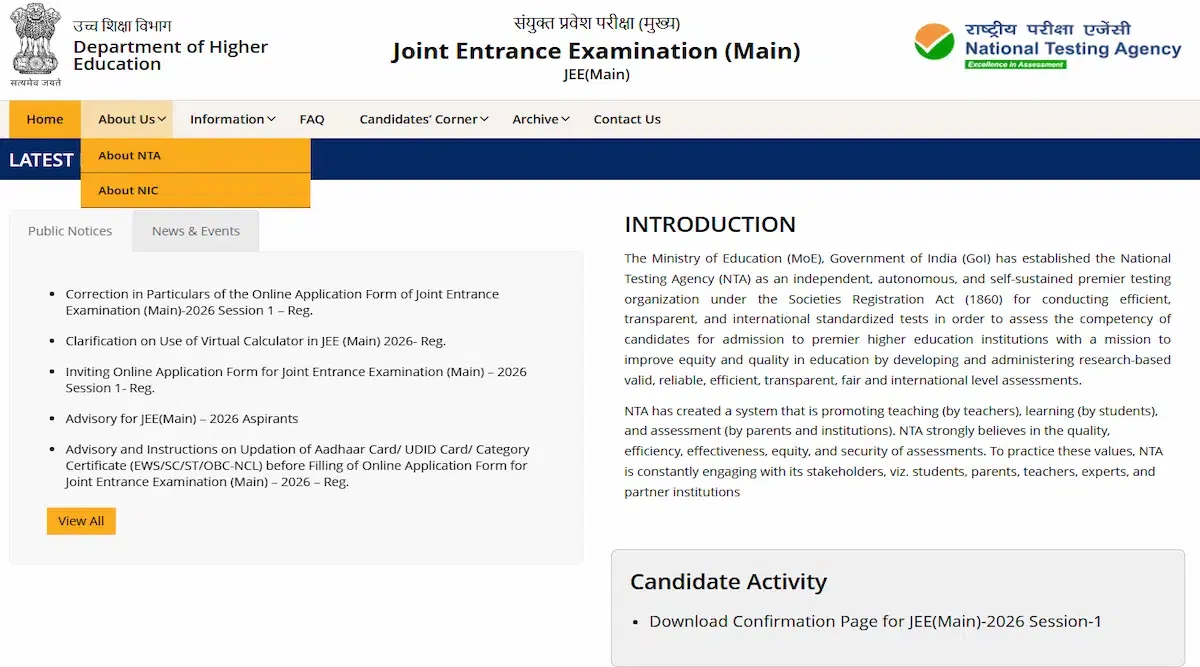Do you know that it is possible to study in Germany for free? Thousands of international students study in Germany due to the country's affordable and high-quality education.
How to study in Germany for free? This is a common question that arises in the minds of study abroad aspirants. Most universities in Germany are state-owned educational institutions, so you will enjoy free-of-cost education even as an international student.
When admitted to a German public university, students only need to pay a basic administration fee at the beginning of each academic year. Are you still wondering how to study in Germany for free? Read through this article to get all your questions answered.
Table of Contents
- Steps for Studying in Germany for Free
- Why Study in Germany?
- Why are there No Tuition Fees at Public Universities in Germany?
- If Tuition is Free, Does that Mean the Universities are not Very Good?
- Free Universities in Germany
Steps for Studying in Germany for Free
Several factors have to be taken into consideration when you plan to study abroad. To be able to study free in Germany, please go through the following steps carefully:
- Course Selection
- University/College Selection
- Tuition Costs (if any) and Blocked Account
- Living and accommodation costs
- Apply
- Get your German Student Visa
- Life in Germany
Course Selection
Students willing to study in Germany should be able to select the course that suits their interests. There are over 17,000 educational exchange programs available to candidates through the German Academic Exchange Service (DAAD). These programs are offered by the best universities in Germany. Out of these, nearly 88 courses are taught in the English language. Thus, it is always recommended for students applying to German public universities to have a working knowledge of the German language.
University/College Selection
After you have selected your course, the next step is to apply to the universities that offer your desired course. The admission requirements for each college may vary, but candidates should be prepared with some important documents like academic transcripts, English language proficiency scores, statement of purpose, letter of recommendation, etc.
Applicants can look up the course content and details of the universities on their official websites and apply accordingly. German universities offer admissions twice in a calendar year, that is, in January and September. However, admissions in the January intake are very limited.
Tuition Costs (if any) and Blocked Account
Public universities in Germany provide free education. Students, however, would be required to pay a nominal administration fee at the start of each semester. Germans give great importance to their education system and make sure that everything is carefully calculated down to the last cent. Every year, according to the prevailing economic conditions as well as the relevant fees structure, every university would request that a monthly sum be provided for the student to facilitate their living expenses in the country as well as for completing his education; this money is deposited in a blocked account.
Depending on the economic conditions and the fees structure, every university would request students to deposit a monthly amount of around €853 in a blocked account. This amount may vary from state to state. The monthly allowance will help students cover their living, accommodation, and travelling expenses in Germany. Students can apply for a number of scholarships and education loans for studying in Germany.
Living and Accommodation Costs
Infamous cities like Berlin, Frankfurt, Munich, etc., the cost of a single room could reach over €400 per month. Depending on where the student is staying in the country, the cost of living will differ. In Germany, residence halls are an affordable option for students. However, it would be difficult to find a place in the residence halls. Therefore, you can reduce the cost of living in Germany by finding a university in the lesser-known cities or by starting early to look for cheaper accommodation. All the other expenses and overheads are similar across the country, so that won’t be an issue.
Apply
After selecting the university and course of your choice and sorting out your expenses, the next step will be to apply for the university. Applicants should start their application process weeks before the official deadline so that they have plenty of time to fill in their application forms. If you are looking for a study loan to study in Germany, make sure you keep all your extra documents in place in order to simplify the application process.
How to Apply?
During the application process, students are required to pay a registration fee that ranges from 150 to 250 Euros. Although admission requirements may vary from one university to another, the following are some important documents that students must submit in order to obtain apply to various German universities:
- A valid passport
- Passport size photographs
- Visa/ Residence Permit
- Completed and signed application form
- Academic Transcripts
- The Letter of Admission
- Evidence of health insurance in Germany
- The payment fee receipt
Get your German Student Visa
Candidates are required to obtain a German student visa or a residence permit in order to stay more than 90 days as a student in Germany. Candidates would need to show proof of sufficient funds in the blocked account as well. Students may obtain a residence permit for a maximum of two years. In case the duration of the course extends beyond the stated two years, a renewal is required.
Life in Germany
Once you receive your acceptance letter and have applied for a student visa, you are all set to study in Germany. It may be a bit challenging for students to adjust to a new culture and environment. However, Germans are friendly in nature and will make you feel at home. With Germany's robust industrial base, graduates have ample opportunities to get lucrative jobs in their respective fields.
Why Study in Germany?
To begin with, you should know why to choose Germany as your study destination. One of the obvious benefits is that the students do not have to pay a tuition fee for getting admitted into public universities. The country also allows students to have access to high-quality education, affordable programs, and a robust economy. In Germany, students interested in pursuing higher education have the opportunity to select from a wide range of programs and schools. There are hundreds of UG courses available to students across all educational institutions, including art schools, technical colleges, business schools, and many more.
Why are there No Tuition Fees at Public Universities in Germany?
It is generally believed among Germans that education should not be treated as a commercial product and that free access to higher education contributes significantly to economic growth and public welfare. Public universities in Germany were permitted to charge very modest tuition fees of 1,000 euros in the past. However, in 2014, most of the universities abolished tuition fees for students due to public protests. At present, there are very few public universities in Germany that charge a tuition fee.
If Tuition is Free, Does that Mean the Universities are not Very Good?
Not at all! Students from abroad can expect a world-class education at Germany's universities. Most of the German universities are consistently ranked among the top 100 in international rankings.
German universities provide high-quality education, regardless of its rankings. Educational institutions in Germany are subject to very strict accreditation standards. German degrees are respected around the world and can open a wide array of career opportunities.
Free Universities in Germany
Now you must have got an answer to your question, "how to study in Germany for free?" As mentioned earlier, public universities in Germany do charge a nominal fee for semester contribution, student union, registration, application etc. Let us now take a look at the top free universities in Germany, along with the details of the semester fees charged by these universities:
|
University |
Approx. Semester Fee (In EUR) |
|
144.00 |
|
|
144.00 |
|
|
120.00 |
|
|
135.00 |
|
|
160.00 |
|
|
165.00 |
|
|
RWTH Aachen University |
200.00 |
|
250.00 |
|
|
270.00 |
|
|
273.00 |
Read More: Free Universities in Germany























POST YOUR COMMENT